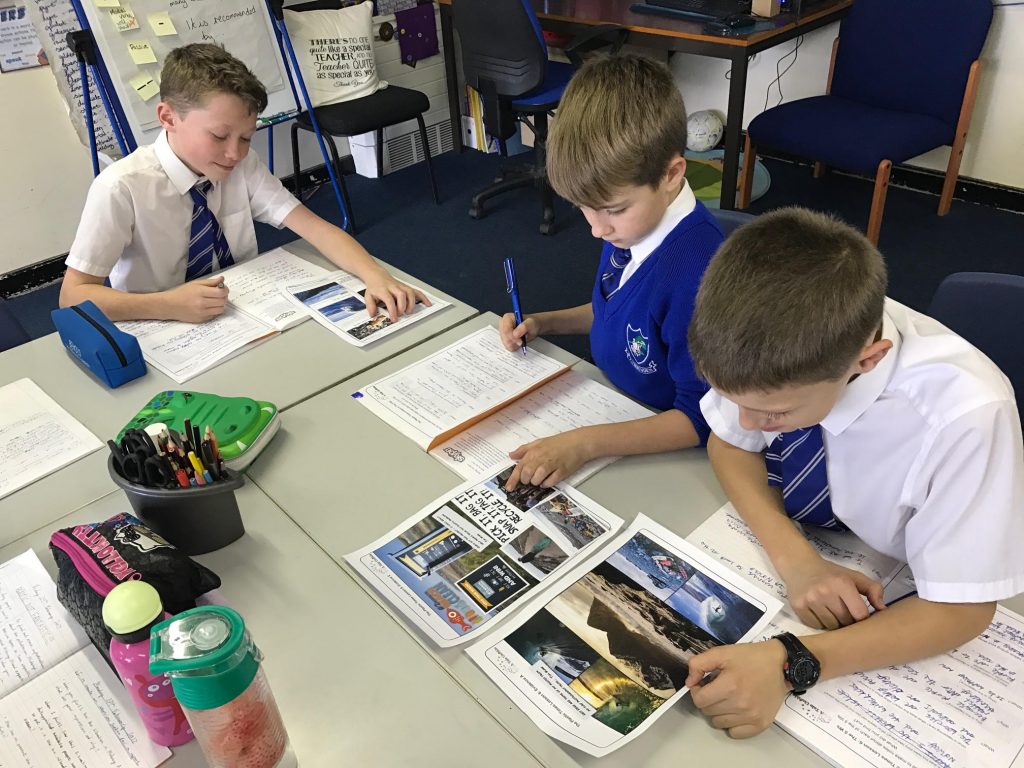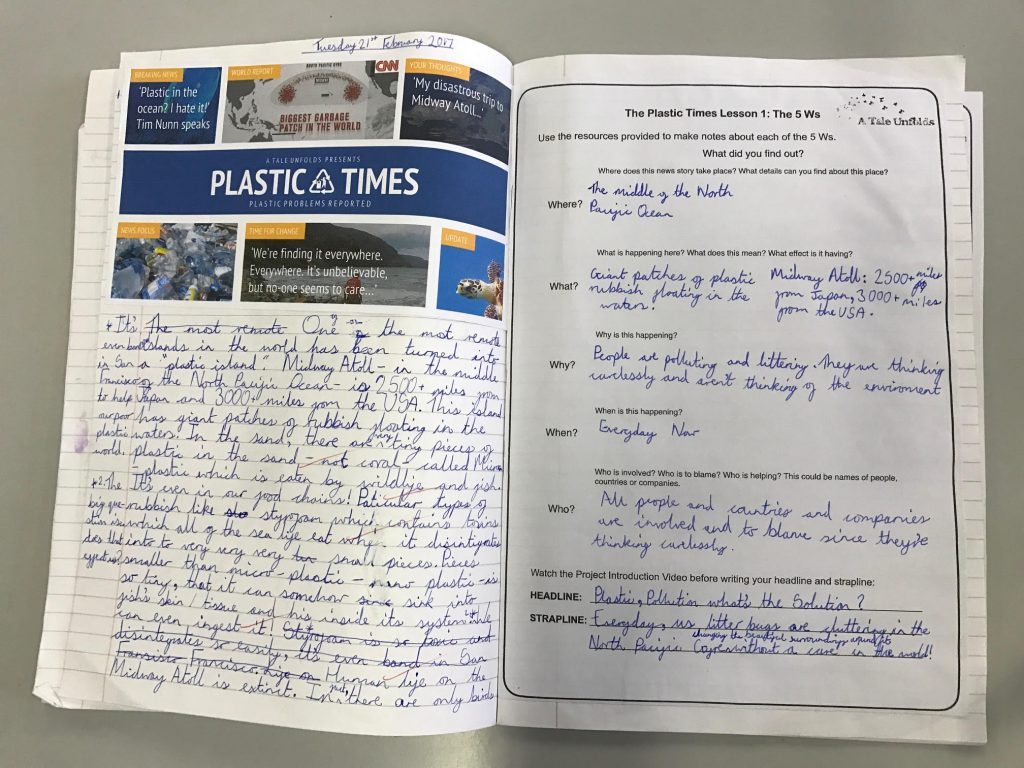Environmental change through digital literacy
This year children at Tubbenden Primary School in Bromley completed the Plastic Times project. This 3-week persuasive writing and filmmaking resource encouraged them to explore the increasingly significant environmental issue of plastic pollution, as well as challenging them to consider their own innovative solutions for a healthier planet. Here, two Year 6 teachers from the school, Laura Venn and Sarah Davey, discuss their experiences as well as the impact that a digital literacy focus had on their pupils.

“Every primary school teacher knows that the most effective learning happens when children are enjoying themselves and passionate about their learning. Combine this enjoyment with creativity and innovation, and you have a recipe for success.
At Tubbenden Primary School, we recently started a new unit of work with our Year 6 class called ‘The Plastic Times’, a digital literacy project with an environmental focus. Given that the project is also part of LitFilmFest, where pupils have the chance to see their work celebrated and shared, enthusiasm levels were sky high.
The aim of the project was to write, produce and film a news report that highlighted the damage caused to oceans and wildlife by plastic pollution. As a topic that regularly features in the news, we were impressed at how aware our pupils were of being part of the ‘disposable generation’, consuming and disposing of enormous amounts of waste every day, with no regard to where it ends up. Although a harsh reality can be a difficult one to face up to, the Plastic Times presented itself in an appropriate manner that captivated the children. They were gripped from the very first lesson and this enthusiasm was maintained throughout, provoking in-depth discussions.
Through meaningful activities such as report writing, questioning and interviews, every lesson gradually built upon the last and included planning, stimulus videos (from CNN and The Plastic Project) and tech guidance too. For us, the progress in our pupils’ writing was clearly evident, but the digital element of the project also had an impact on other areas of their learning. Filmmaking is inclusive: it motivates pupils of all abilities and allows them to assume different roles, both on and off screen, all of which have a significant part to play in the production. The collaboration required to create the news report and product brochure (using Book Creator) really helped to develop the children’s team-building skills and confidence too.

As educators to the future generation of our planet, we have a responsibility in schools to help pupils to understand the impact that our current practices are having on the environment. The Plastic Times helped us to increase their awareness of this unfortunate truth whilst enabling pupils to make clear literacy progress at the same time. What began as a filmmaking project developed far beyond our expectations, igniting a united passion amongst the children to make a positive change for our future. It’s a topic our children will not forget and, as teachers, we’re hoping that we’ve helped shape the future attitudes of a small number that might lead to positive change in wider society.”
To discover more about the Plastic Times and other powerful filmmaking and literacy projects to inspire social, political and environmental change, click here. For more information on LitFilmFest, the brand new festival giving KS2 children the opportunity to showcase their filmmaking and writing efforts, visit LitFilmFest.










